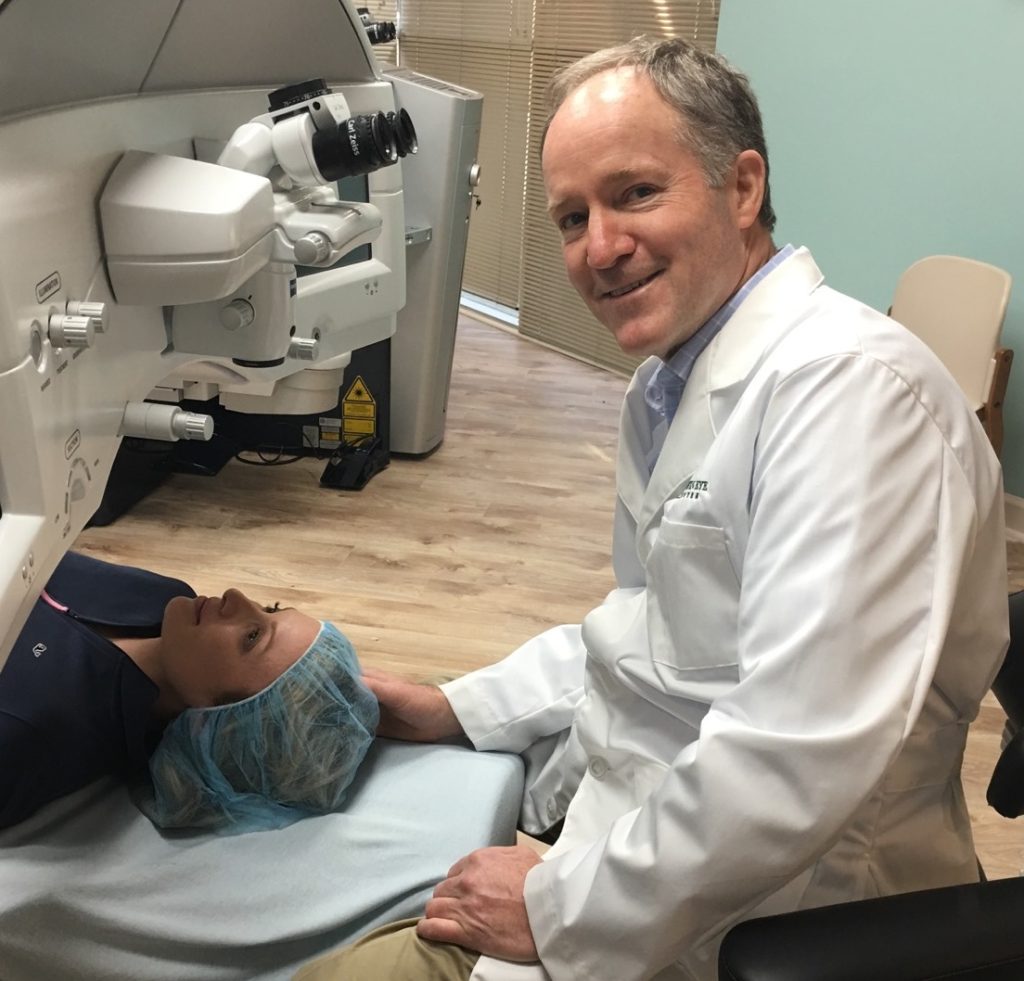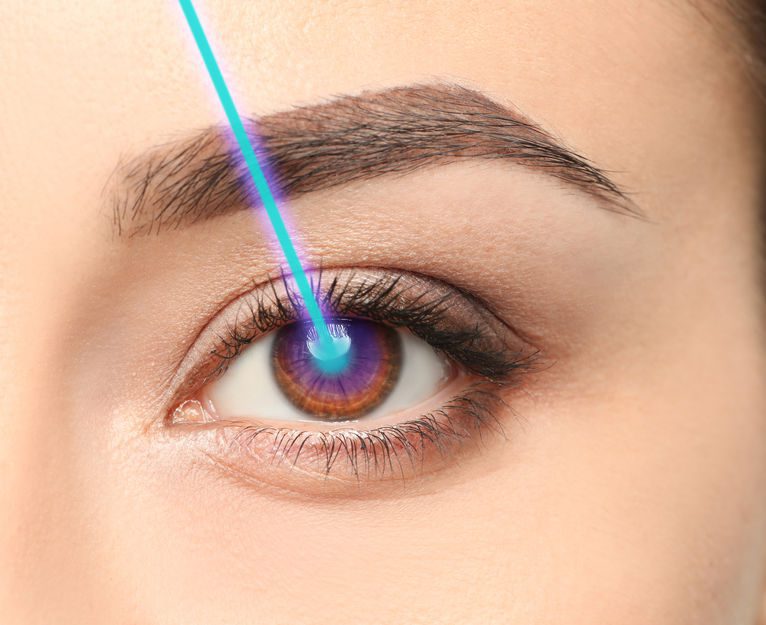One of the most frequently asked questions eye doctors are asked about is how long does LASIK last?
Does LASIK Surgery Last Forever?
The short and simple answer is yes. Procedures such as LASIK, PRK, and SMILE are permanent forms of laser vision correction.
However, what many people really want to know is: Will I have to wear glasses again? The answer to that question is more complex. Why? Because the eyes are part of your body and, just like the rest of your body, they change as a result of age and other factors – changes a laser vision correction procedure such as LASIK can’t prevent from happening.
What Age to Get LASIK?
When you were younger, say between the ages of 7 and 23, you might have noticed changes in your vision. Maybe even a lot of changes. Eyes develop and mature, just like the rest of the body, during this time. And, if there are vision problems such as nearsightedness, farsightedness, and astigmatism, those problems can change along with the eye itself. Young adults in their late teens and early twenties are often very interested in laser vision correction and some are told they need to wait until their prescription is “stable” – meaning their vision hasn’t changed in the past year. It’s just a part of the maturing process when the body and the eyes undergo a lot of changes over a relatively short period of time.
However, the body doesn’t stop changing with time – and neither do the eyes. For most of us, changes related to age don’t really become a factor until after the age of 40. Most people around 40 begin to notice their reading vision – items in the near-range of vision – isn’t as crisp and clear as it used to be. This is a result of the aging of the lens – the part of your eye that sits behind the iris. These changes are called presbyopia. Over time, the lens stiffens and eventually becomes cloudy – this is called a cataract. Presbyopia and cataracts are part of the aging process.
The next natural question may be: well, if I’m going to need corrective lenses in my 40s, is it worth investing in laser vision correction now? The answer is yes. There are many important factors when considering how old you should be when you get LASIK.
Importantly, laser vision correction procedures don’t treat the lens, they reshape the surface of the eye, known as the cornea. That reshaping is permanent and can have a lasting impact on the quality of your vision for years. To clarify the situation, we looked at the latest research and asked Drs. Eric Donnenfeld and Gregory Parkhurst to help answer these questions, including “How long does LASIK last?”
Q: How long does LASIK last? Is LASIK temporary or permanent?
If you are wondering how long does Lasik last. The effects of LASIK surgery permanently correct the vision prescription – nearsightedness, farsightedness, or astigmatism. After LASIK surgery your eyes can continue to change over the course of your lifetime. In a recent study, 94% of patients stated they did not need prescription lenses 5 years after having LASIK.
DONNENFELD: How long LASIK lasts partially depends on how old you are when you have the laser vision correction procedure. It is a very persistent myth; people think that LASIK is not permanent and that it may only last a few years. The reality is, that LASIK permanently corrects the vision prescription – your nearsightedness, farsightedness, or astigmatism – that you come in with to have the procedure. It does this by using a laser to reshape the cornea, eliminating the imperfections of the cornea that cause your nearsightedness, farsightedness, and/or astigmatism. Those imperfections are gone, so the idea that a patient’s eyes occasionally “regress” following LASIK doesn’t really make sense. However, what does happen on occasion is a patient’s myopia (nearsightedness) or hyperopia (farsightedness) actually progresses. Like all living things, your eyes can change over the course of your lifetime. It wouldn’t be reasonable to expect to buy a pair of glasses and have them last your entire lifetime. Your eyes can change, but they will never go back to being as bad as they were prior to LASIK.
PARKHURST: We think some of the basis for this myth is the reality of presbyopia – LASIK doesn’t prevent it, but it happens to most everyone. Presbyopia typically begins somewhere around the age of 40. The lens of the eye – not the cornea that was reshaped with LASIK, but the lens behind the cornea – loses its ability to focus on objects nearby. Even if you were born with good vision in both eyes, you will likely need reading glasses in your mid-forties – the same is true for people who chose to have their vision corrected with a procedure such as LASIK. Importantly, LASIK doesn’t make presbyopia worse or make it happen sooner. However, because presbyopia is an eventuality for everyone, making the most out of your LASIK vision correction can depend on how old you are when you have your procedure. If you are in your early 20s, then you can look forward to years of great vision without needing prescription lenses.
WHAT THE RESEARCH SAYS:
A recent study in the Journal of Cataract and Refractive Surgery of patient-reported data concluded that quality-of-life and satisfaction rates remained high 5 years after LASIK. The study also reported more than 94% of patients stated they were not wearing distance prescription lenses 5 years after having LASIK.
LASIK Complications and side effects are extremely rare. Occurring in less than 1 percent of procedures. LASIK recovery can look different for each patient.
The information for this article is from the Refractive Surgery Council August 2022.
Leading Ophthalmologist, Neil B. Griffin, M.D., has been serving the Carolina’s for over 20 years and specializes in LASIK, cataract, and cornea surgery. He is board certified by the American board of Ophthalmology and fellowship trained in cornea and external eye disease. Dr. Neil Griffin is committed to providing world class surgical technologies and the most advanced vision diagnostics to the Myrtle Beach, Murrells Inlet, North Myrtle Beach, and South Carolina area. Griffin Eye Center offers the latest in advanced cataract surgery, with more options for Intra-Ocular Lenses (IOL) such as the Light Adjustable Lens after cataract surgery, the first in the US to use the Zepto® microsurgical technology, to being the first center in South Carolina to offer an on-site LASIK suite with the most advanced combination of both the Wavelight® EX500 excimer laser and VisuMax® laser.
If you would like more information on LASIK or sign up for a LASIK screening contact us at 843-449-6414 or visit griffineyecenter.com.

